Dubai currently holds the 38th position overall based on the latest cost of living index, as the most expensive place in the world for expatriate living, out of 300 international locations. This means that the cost of living in Dubai is fairly expensive, but not as much as many other cities. If you are planning to relocate to Dubai, it is helpful to gain a rough estimate of what it might cost to live here.
Expect to wheel and deal for your salary. There is no minimum wage, so should you land an interview, be prepared to answer the question of how much you expect to be paid. Set a bottom limit so that you don’t slip under it. Once you’ve landed that job, the three factors that will determine your quality of living will be: your living expenses, your purchasing power and your lifestyle.
Without having lived in Dubai, knowing how much of a salary you will need is difficult to determine, but the three most important factors are: transportation, accommodations and food.
Let’s take a brief look at each one of these.
Transportation cost in Dubai
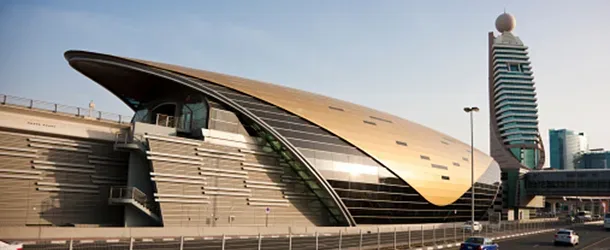
Transportation is definitely a consideration in Dubai. Business centres have been designed to be situated away from residential districts, and traffic is usually heavy especially during peak hours, with massive vehicle volume seen in Dubai’s prime locations, particularly on Sheikh Zayed Street.
The Dubai bus or metro system and taxis are good options for transportation. Dubai bus or metro cost around AED 2.00 to AED 6.00 for less than 3kms (AED 4.80 for one-way ticket) while monthly pass can cost AED 200.,Taxis go for around AED 3 for first 0km as minimum fare and thereafter AED 1.6 per kilometre is charged within Dubai.,There are also abras or water taxis and car lifts.,Some residents will even choose to rent a car paying a monthly average while also saving money to buy a car. Usually those who own cars help to transport friends and officemates to and from work.[/list]
Gasoline is fairly cheap in Dubai, so those who can afford to buy a car and can obtain a driver’s license will do well to buy a vehicle. Ordinary second-hand cars go for around AED 15,000 to AED 50,000 and a brand new car will range anywhere from AED 40,000 to AED 300,000. Despite the work-hour commute, owning a car is definitely an advantage in Dubai. A car is the fastest, cheapest and simplest way to get around town.
The UAE boasts of the fifth cheapest petrol prices in the whole wide world – The price of 1 litre of gas in Dubai is AED 1.75.
Accommodation cost in Dubai
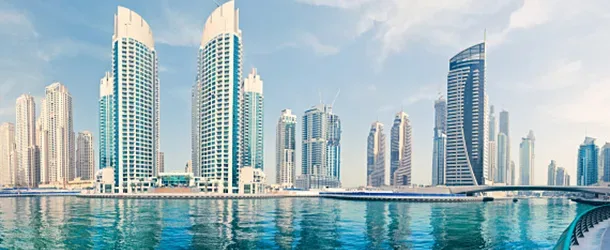
This is possibly the most expensive thing to be considered, as real estate in Dubai is a booming business, and because Dubai has a high demand for accommodation. As a result, rents and costs related to housing have gone up considerably in recent years, given the surge in businesses, the expatriate influx and the increased demand for accommodation.
Many share a flat for practical reasons (although it is said “illegal”). Sharing rent certainly helps in coughing up the required payment of deposits and advance rentals, as it is shared between individuals. Flats are fairly common among single individuals.
Expatriates with families, or singles who can afford to pay the rental of a flat/villa/apartment, or those entitled to housing allowance, have a range of options to choose from, including studios, single, double, triple bedroom apartments, and villas, depending on the budget allocated. Housing rentals, of course, will vary depending on the location, be it Deira, or Bur Dubai, Jumeirah, Business Bay or Downtown Dubai.
House Rental Costs
The average rentals are in the following ranges (these are approximate figures, depending on location and current market):
Single bedroom – AED 50 000 to AED 100 000 p.a.
Double bedroom – AED 70 000 to AED 150 000 p.a.
Studio – AED 30 000 to AED 70 000 p.a.,Villa – AED 130 000 to AED 400 000 p.a.
Food Cost in Dubai

Despite inflation and the bad state of affairs of the world’s economy, the cost of food is relatively inexpensive in Dubai. Not only is it inexpensive, but because of Dubai’s international population, a wide variety of authentic dishes from all over the globe can be found – everything from Indian Biryani to Italian pasta. At the same time, expatriates can often find many of their favourite dishes from their home countries.
Dining out at Dubai’s premium restaurants is expensive as expected, but there are many restaurants that offer delicious dishes for a reasonable AED 35 to AED 95 per person. Still, if you want to eat on a smaller budget, cook at home during the week and reserve eating out for the weekends.
Education Cost in Dubai

The costs of education are high in Dubai. Relocating to Dubai with children of school age may prove to be a challenge if salaries are insufficient to meet educational needs, while also meeting demands of a cosmopolitan lifestyle. Typically, private schools that are run by American and British nationals usually have high fees while a few other schools, operated by Asians, are comparatively more affordable.
The directories and profiles of several private schools in Dubai are available online, and it would be good to research few private schools in Dubai before relocation. Further, be aware that a hike in tuition fees can be expected at any time.
In general, grade school tuition fees range from AED 10,000 to AED 100,000 for a full school year. Children are expected to learn conversational Arab language as to communicate with other kids and to become familiar with the culture of Middle East. Therefore, it may be necessary to hire a part-time tutor as well. The standard rates are not set so this expense will depend on one-on-one negotiations between parents and tutors.
Though seemingly high, the cost of education: pre-school fees, crèche, high-school and college and tertiary study fees in Dubai is still comparatively lower to several other cities.
Communication Expenses

Dubai has a modern communications infrastructure. The cost of home telephone rental, call charges, service provider fees, internet connection, mobile/cellular phone contract, in comparison to other cities is moderately expensive.
Within the Emirates, calls are either free and calls outside of the Emirates have very low fees. Monthly telephone calls, including a mobile or a landline, could range anywhere from AED 50 to AED 500 within UAE, depending on usage.
Groceries and Utilities Expenses
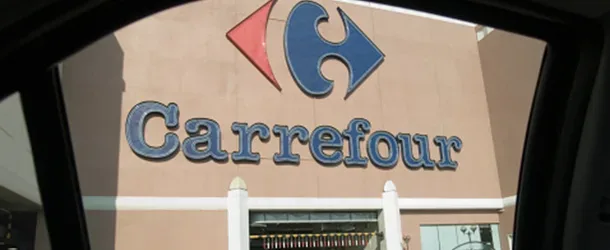
The costs of food, non-alcoholic beverages and cleaning material items, including baby consumables, canned foods, baking, baked goods, cleaning products, cheese, dairy, fresh fruits, vegetables, pet food, ready-made meals, snacks, seafood, spices and herbs are expensive in Dubai, in comparison to other cities.
The majority of goods in Dubai are imported from the country of manufacture, so expect to pay 20 to 50 percent more for goods that you would normally find on the grocery shelves of your home country, to offset the small amount of Dubai import duty that is levied on these goods.
As for household costs, water, electricity, household gas, household fuels, residential taxes on house/flat mortgage, house/flat rental, and local property taxes, these are more expensive than other cities.
Clothing

The costs of clothing and footwear including business suits, casual clothing, children clothing, hats, evening wear, inner wear and accessories is either expensive, affordable, or even cheap, depending on where and when you are shopping (Louis Vuitton is not the same price range as Forever 21).
There are two big sales periods throughout the year, called DSF (Dubai Shopping Festival in January) and DSS (Dubai Summer Surprises in August)
Healthcare

Dubai is focusing its resources to develop a world class healthcare infrastructure.
Currently, the cost of healthcare in Dubai is quite high but it is hoped to become less expensive in future. Dubai’s healthcare is, with cost of general healthcare, medical and medical insurance, consultation rates, hospital private ward daily rate, non-prescription medicine, private medical insurance, medical aid contributions, all relatively more expensive in comparison to other cities.
Furniture and Appliances
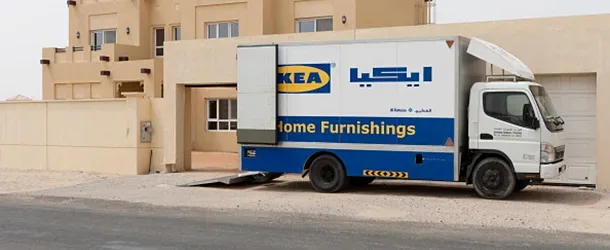
The cost of household items and equipment depends on where and when you buy. There is Ikea in Dubai, as well as Home Centre which are fairly cheap furniture shops; you will also find high-end local and international retailers. Expect to find all of the modern amenities of a big international city: furniture, household appliances including iron, freezer, fridge, toaster, kettle, light bulbs, television, vacuum cleaner and a washing machine, etc. Household appliances can be found in Carrefour, Lulu or Hyperpanda at reasonable price, or even in Al Fahidi, Deira, and Satwa quarters at a cheaper price (and cheaper quality).
Recreation
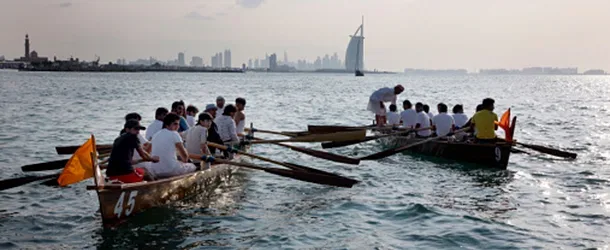
Expenses related to leisure and socializing are expensive, as Dubai is an international business, entertainment and sports hub for the region. The cost of books, cinema tickets (AED 35-AED 50), DVD, CDs, sporting events, and theatre tickets for example, are comparatively more expensive than elsewhere.
Miscellaneous
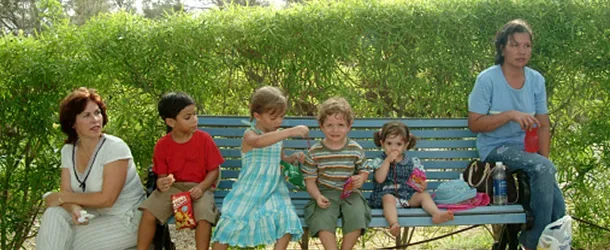
Miscellaneous costs pertaining to general goods and services, including domestic help, linens, dry cleaning, office supplies, postage, newspapers and magazines are all quite high in Dubai. Also, the cost of personal care products including hair care, cosmetics, sun block, moisturizers, over-the-counter medicines, toothpaste, and shampoo and such products are as expensive as in any other big city, also depending on where you get these products (Waitrose would be more expensive than Carrefour or Spinneys for instance).
